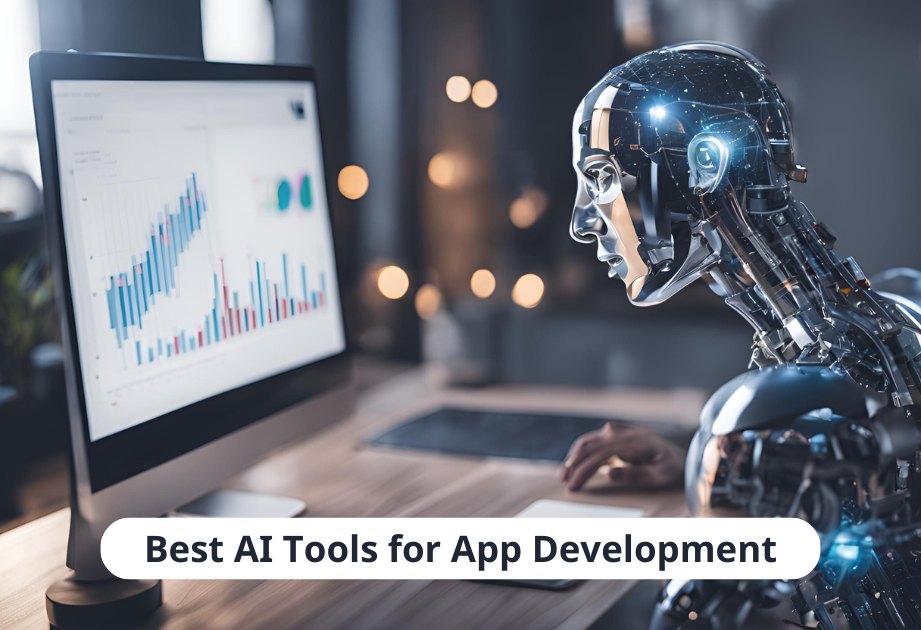In today’s fast-paced tech environment, app development is no longer confined to traditional coding methods. Artificial intelligence (AI) tools have become game-changers, enabling developers to create robust applications faster and more efficiently. This article highlights the best AI tools for app development, their features, and how they can transform your development process. Whether you’re a beginner or an experienced developer, these tools will help you stay ahead in the competitive app market.
Table of Contents
Why AI Tools Matter in App Development
AI tools for app development automate repetitive tasks, enhance code quality, and enable innovation. Here’s why they’re essential:
- Efficiency: Speed up the development lifecycle by automating mundane coding tasks.
- Quality Assurance: Detect and fix bugs before deployment.
- Innovation: Leverage AI-powered insights for user-friendly designs and functionalities.
- Scalability: Build scalable apps that adapt to growing user demands.
Top AI Tools for App Development
1. GitHub Copilot: AI-Powered Coding Assistant
Primary Use: Code suggestions and autocompletion
Key Features:
- Generates code snippets based on natural language prompts.
- Supports multiple programming languages.
- Integrates seamlessly with popular IDEs like VS Code.
GitHub Copilot is a must-have tool for developers looking to boost productivity and write cleaner code. It’s especially helpful for solving complex problems and reducing coding time.
2. TensorFlow: Build AI-Powered Apps
Primary Use: Machine learning and AI integration
Key Features:
- Open-source platform for developing machine learning models.
- Pre-trained models for tasks like image recognition and natural language processing.
- Scalable solutions for both mobile and web applications.
TensorFlow empowers developers to integrate advanced AI features into their apps, creating smarter and more interactive user experiences.
3. Appcelerator: Simplify Cross-Platform Development
Primary Use: App creation for multiple platforms
Key Features:
- AI-driven analytics for performance tracking.
- Unified codebase for iOS, Android, and Windows apps.
- Pre-built components to speed up development.
Appcelerator’s AI capabilities make it easier to optimize app performance and enhance user engagement.
4. Dialogflow: AI for Conversational Interfaces
Primary Use: Building chatbots and voice assistants
Key Features:
- Supports natural language understanding (NLU).
- Integrates with platforms like Google Assistant, Alexa, and Messenger.
- Provides analytics to improve conversational flows.
Dialogflow is ideal for developers creating apps that require conversational interfaces, ensuring seamless user interactions.
5. FlutterFlow: Visual App Development with AI
Primary Use: No-code/low-code app development
Key Features:
- Drag-and-drop interface for designing apps.
- AI-assisted testing and debugging.
- Real-time previews and integration with Firebase.
FlutterFlow enables developers to prototype and deploy apps quickly without extensive coding knowledge.
Additional AI Tools for App Development
- Kite: AI-powered code completion and documentation suggestions.
- Hugging Face: Offers pre-trained NLP models for text-based apps.
- IBM Watson: Provides APIs for AI-driven app functionalities like language translation and sentiment analysis.
- Firebase ML: Adds machine learning capabilities to mobile apps.
- PyTorch: A flexible framework for building deep learning models.
How to Choose the Right AI Tools for App Development
When selecting AI tools, consider these factors:
- Project Requirements: Choose tools that align with your app’s goals and features.
- Learning Curve: Opt for tools that are user-friendly and come with robust documentation.
- Budget: Evaluate free and premium options based on your resources.
- Integration: Ensure compatibility with your existing development environment.
- Community Support: Look for tools with active user communities for troubleshooting and inspiration.
Benefits of Using AI Tools in App Development
- Faster Time-to-Market: Automate coding and testing to launch apps quicker.
- Cost Efficiency: Reduce the need for extensive manpower and resources.
- Improved User Experience: Incorporate AI-driven insights for intuitive app design.
- High-Quality Code: Minimize bugs and enhance code readability.
Best Practices for Using AI Tools
To maximize the potential of AI tools, follow these best practices:
- Stay Updated: Regularly update tools to access new features and security patches.
- Experiment: Test different tools to find the best fit for your workflow.
- Combine Tools: Use a combination of tools for different aspects of app development, such as coding, design, and testing.
- Maintain Ethics: Ensure AI tools are used responsibly, especially when handling user data.
Conclusion
AI tools are revolutionizing app development, offering developers unparalleled support in coding, designing, and optimizing applications. From GitHub Copilot’s intelligent coding suggestions to TensorFlow’s advanced machine learning capabilities, the best AI tools for app development can significantly enhance your productivity and creativity. Start integrating these tools into your workflow today and take your app development projects to the next level.
Which AI tool are you excited to try for your next app? Share your experiences in the comments below!
